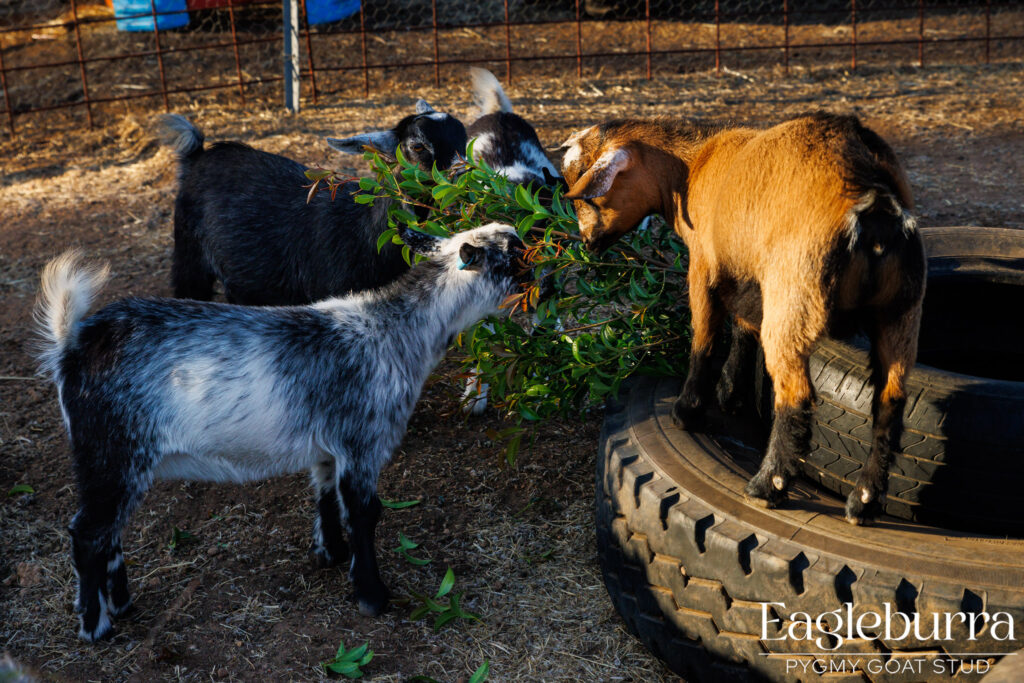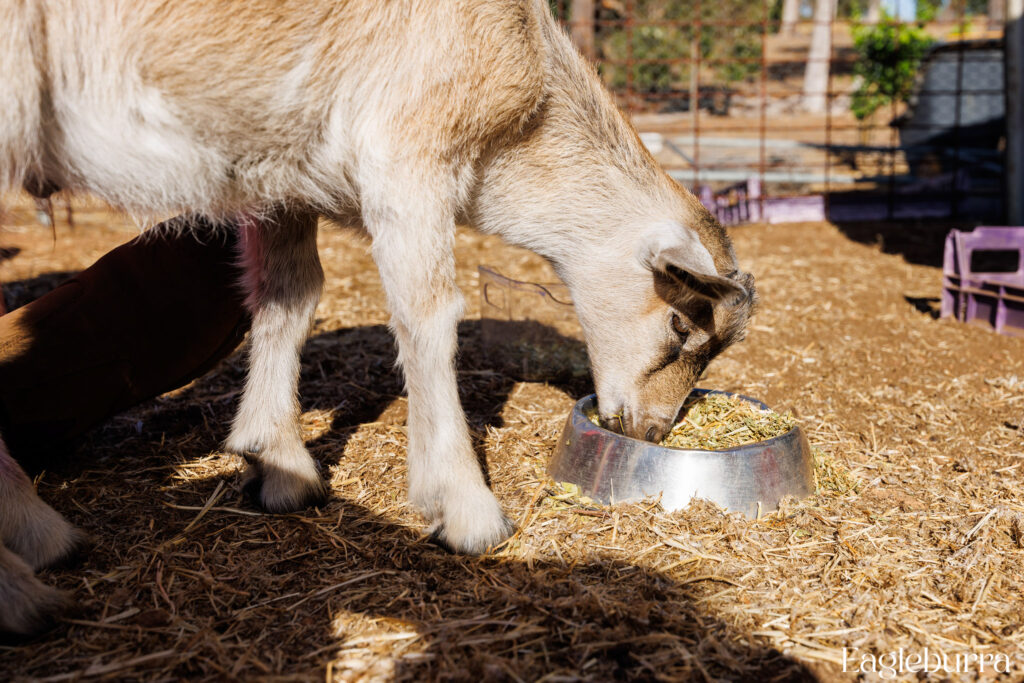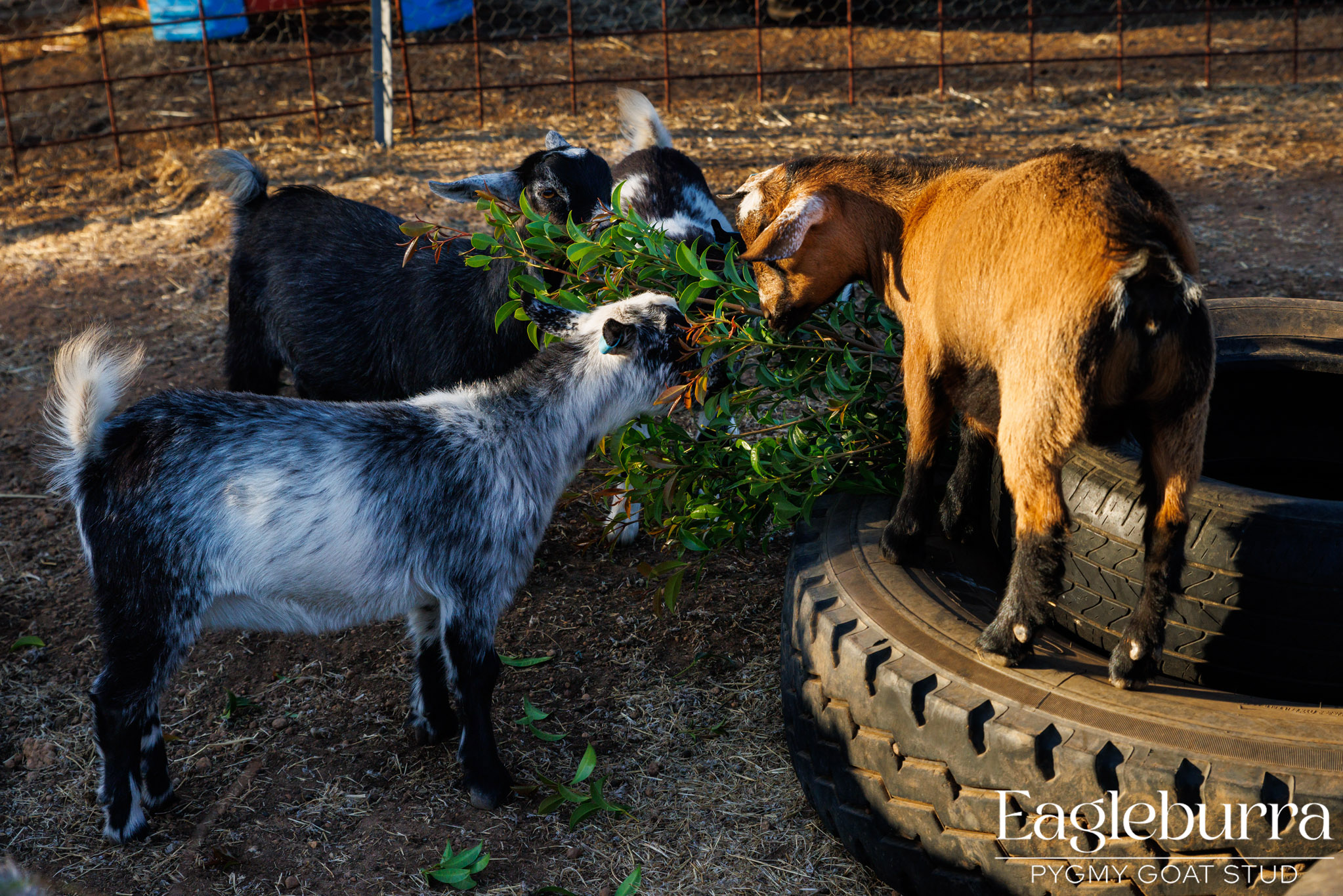Pygmy Goats are ruminants like sheep and cows, they have four stomachs and digest their food by fermentation in their rumen.
Correct feeding and keeping the rumen healthy is essential to keeping your Pygmy Goat healthy.
QUALITY HAY AND PASTURE
Goats are browsing animals rather than grazers like horses, cows and sheep. In the wild they predominantly browse a range of different trees, shrubs and weeds but as sufficient browse is often not available as 24/7 feed for pet Pygmy Goats, the bulk of their diet should always consist of quality hay and pasture.
CUT BROWSE
Pygmy Goats can also be provided with cut branches of goat safe trees and shrubs, particularly Australian natives such as wattle, bottlebrush, lilly pilly, grevilia, banksia, eucalypts, acacia as well as things like tagasaste (lucerne tree), pigeon pea, mulberry, raspberry and willow.

CONCENTRATES AND PELLETS
Concentrates or processed foods like goat pellets, goat muesli, grain, lupins as well as lucerne (hay or chaff) all need to be introduced slowly and fed in small quantities to avoid changing the pH of the rumen and upsetting the fermentation process by killing the good bacteria. Its best to feed these with oaten or wheaten chaff or after your Pygmy Goats have been eating hay.
To avoid the imbalance of calcium to phosphorus ratio that can cause Urinary Calculi in wethers and bucks, grains and lucerne should be limited (or avoided altogether) unless you are certain the total dietary intake (including the minerals in the water source) has correctly balanced ratios.
Food digestion aside, the rumen is where B vitamins including B1 (Thiamine) and B12 critical for goat health are produced. Vitamin B1 Deficiency causes Goat Polio (not like Human Polio) and deficiencies in B12 leads to weightloss and metabolic problems – both cause severe illness and death if not treated quickly.

TREATS
Additional foods like pumpkin, carrots, lettuce, tomato, sweet potato, cauliflower, broccoli, apples, bananas including skins, strawberries, sunflower seeds, watermelon, blueberries, sultanas, rose leaves and petals, orange and mandarins, grapes, leafy green like spinach, silverbeet, kale and Asian greens can be fed chopped into small pieces and fed in small quantities as treats.
Just like humans, Pygmy Goats can have very strong opinion on what foods they will and won’t eat. Ours will just about sell their souls for wheat-bix, but are not overly keen on fruit and vegies.
Our Pygmy Goats diet is mainly hay, pasture, along with a small amount of goat pellets and muesli with oaten chaff, a small portion of lucerne chaff and a teaspoon of black sunflower seeds each. They also regularly get Livamol and Anitone.
TOXIC FRUIT AND VEGETABLES
Tomatoes, capsicum, chilli, potatoes and eggplant are all from the nightshade family and all parts of the plant are toxic to goats.
Leaves and branches from any of the prunus species of fruit trees – plums, apricots, peaches, cherries etc are cyanogenic when wilted and toxic to goats. While some people do feed fresh leaves and fruit to their goats, we didn’t want to take the risk with ours and had all our prunus fruit trees removed from around their paddocks to make sure no wilted leaves or branches would ever blow inside the fence.

